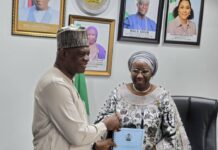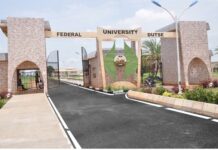By Afolabi Olajuwon
Since his election in 2013, Pope Francis has distinguished himself as a prominent advocate for global peace and social justice.
His approach echoes across religious and national boundaries, prompting dialogue and fostering reconciliation in a world often marred by division and conflict.
In my findings and research, come with me to analyse Pope Francis’s diplomatic and humanitarian efforts, highlighting notable initiatives and outcomes that exemplify his commitment to fostering peace.
Pope Francis’s papacy is marked by a dedication to humility and outreach, principles rooted in his early life in Argentina.
From the outset, his choice of the name “Francis,” in honour of St. Francis of Assisi, signaled a commitment to peace, simplicity, and solidarity with the poor.
This message has been central to his peacemaking efforts, underscoring the interconnectedness of peace, social justice, and environmental stewardship.
One of Pope Francis’s significant contributions to global peace is his focus on interfaith dialogue.
His historic meeting with Grand Imam Ahmed el-Tayeb of Al-Azhar in February 2019 resulted in the “Document on Human Fraternity,” which called for interreligious cooperation and mutual respect. This groundbreaking declaration was an important step in ameliorating Catholic-Muslim relations, fostering mutual understanding and common action for global peace.
Pope Francis has actively engaged in diplomatic efforts to resolve conflicts and promote peace. In Cuba’s rapprochement with the United States, his behind-the-scenes mediation proved crucial in re-establishing diplomatic ties.
Similarly, his appeal to prevent U.S. military intervention in Syria in 2013, backed by a global day of fasting and prayer, highlighted the Vatican’s influence in international peace-making.
His visits to conflict zones, such as his 2019 trip to South Sudan and the Central African Republic in 2015, underscore his commitment to supporting peace at the grassroots level.
These visits often serve not only as symbols of hope but also stimulate local peace initiatives and international awareness of these regions’ struggles.
Pope Francis’s 2015 encyclical, “Laudato Si’: On Care for Our Common Home,” has further expanded the concept of peace to include environmental justice.
The encyclical addresses climate change as a critical factor in global instability and conflict, urging for worldwide ecological conversion.
This document has been influential among both religious communities and secular environmental movements, highlighting how environmental devastation disproportionately affects the poor and marginalized, thus linking ecological issues to social justice and broadening the definition of peace.
During crises such as the COVID-19 pandemic, Pope Francis has called for a global ceasefire, emphasizing that peace and solidarity are necessary to address common challenges effectively.
His Easter letter in 2020 appealed for international cooperation and peaceful conflict resolution, reflecting his belief that crises offer opportunities for transformative change and the cultivation of a more peaceful world order.
Pope Francis’s vision for peace extends beyond conventional diplomacy; it embodies a holistic approach that encompasses dialogue, environmental care, social justice, and grassroots activism.
His leadership challenges individuals and nations alike to transcend divisions and work collaboratively towards a more just and peaceful global society. Through his tireless advocacy and profound moral authority, Pope Francis continues to shape the discourse on global peace, reminding the world that true peace begins with justice, empathy, and collective responsibility.
By addressing both the symptoms and root causes of conflict, he stands as a beacon of hope, urging a move beyond the mere absence of war towards the presence of justice and reconciliation.
It is this comprehensive vision that firmly places Pope Francis as one of the most impactful peacemakers of the 21st century.
Dr. Afolabi Olajuwon is a Fellow of the Nigerian Institute of Public Relations, Fellow of the Institute of Management Consultants, Fellow of the Chronicle Business School, Abuja, Researcher and resource person at the International Institute of Journalism














